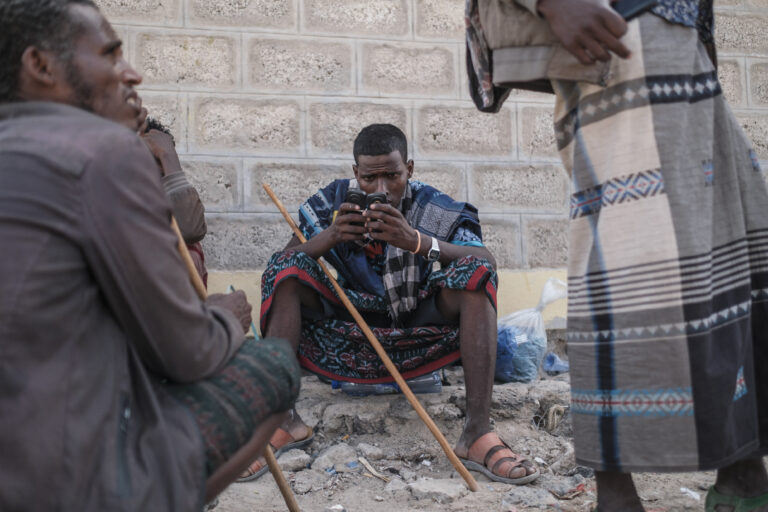(EFJA/IFEX) – The following is a 24 August 2000 EFJA press release: The Ethiopian Free Press Journalists’ Association expresses its indignation over the big increase in printing costs EFJA has said the 30.5 per cent increase in the cost of printing made by printing press enterprises has adversely affected the activities of the Ethiopian free […]
(EFJA/IFEX) – The following is a 24 August 2000 EFJA press release:
The Ethiopian Free Press Journalists’ Association expresses its indignation over the big increase in printing costs
EFJA has said the 30.5 per cent increase in the cost of printing made by printing press enterprises has adversely affected the activities of the Ethiopian free press. In a statement issued on 2 August 2000, EFJA called on all concerned to find a quick solution to this problem that poses a great danger to the very existence of the free press.
An excerpt of the statement follows:
Over the past eight years, the Ethiopian free press has made great contributions in terms of enlightening and informing the public. It has served as a platform for the free expression ideas and divergent views regarding the political, economic, social and other issues that are close to the hearts of the Ethiopian people.
In this crusade, members of the Ethiopian press have undergone great trials and tribulations that include arbitrary arrests, imprisonment, harassment and abduction. Several members were killed by state security forces while others were forced to flee the country. All these obstacles have created a great challenge to members of the free press. Despite all these and other difficulties, they have been making persistent and unyielding efforts to contribute their respective share in the on-going democratization process. And now, they are facing a new challenge: a spiralling rise in the cost of printing. Most government and private publications (newspapers and magazines) are printed by two government-owned printing enterprises. There is no other alternative to these two businesses.
The two printing enterprises have on several occasions in the past made increases in the cost of printing on the grounds of compensating for the differences brought about by rises in the prices of paper and pulp. Last week, the enterprises made an increase in printing costs by 30.5%. This exorbitant increase is by no means within the capacity of the free press.
Since the printing of free press publications started in Ethiopia, the cost of printing an eight-page newspaper has increased by more than 100 per cent. It must be noted here that the circulation of many of the free press publications is limited. Besides, they do not enjoy reliable and constant support in terms of publishing advertisements. As a result, these publications have reached a stage where they are unable to cover the cost of printing and other expenses through the sale of newspapers.
Let us have a quick glance at the state of free press publications in Ethiopia since the change of government in May 1991. After the downfall of the Derg and the subsequent takeover of power by the new government, private press newspapers and magazines mushroomed. Today, 75 per cent of these publications are out of print. The spiralling cost of printing has had a direct or indirect role in bringing about the disappearance of the private newspapers and publications from the market.
Besides this, journalists working with the private press have been victims of police harassment and imprisonment. Repeated charges have been filed against them for alleged violations of the press law. Despite these great hurdles, Ethiopian free press journalists have been fulfilling their mission of teaching and informing the public. And this is a commitment that is unique to Ethiopia and has won international admiration.
As has been witnessed in several countries, totalitarian regimes enforce laws that limit the activities of the free press. Besides which, such regimes file criminal charges against free press journalists and subject them to imprisonment and threats. They control the distribution of newspapers, make big increases in printing costs and prices of the newspapers. They unleash destructive misinformation and disinformation campaigns through publications that are under their control. They deny access to information and discourage the publication of advertisements in private newspapers and magazines.
It is through the public’s trust that they have developed in due course and their unswerving commitment to the popular cause that they were able to command world-wide respect and win an international award.
Members of the free press have withstood the economic and political sabotage unleashed by dictators that rule the country under the guise of democracy. They have also stood strongly against shabby threats and arrogance. In the process, they have maintained their organizational freedom and have been true to their professional and public commitments.
Members of the private press are currently faced with a challenge that threatens their well-being and existence at a time when they are organizing themselves to continue their service to the public with greater vigour and tenacity.
We should stress here that a quick solution should be found to this serious challenge that poses a great danger to the very democratic rights of the Ethiopian people.
We therefore call on the government, the Ethiopian people, our professional colleagues, international press organizations, journalists associations throughout the world and the international community to do whatever is possible to resolve the problems that face the free press – the problem of the sky-rocketing printing costs.
Particularly, we call on our professional colleagues in international press organizations and journalists’ associations throughout the world to make their voices heard about this serious challenge that poses a great danger to the democratic rights of Ethiopian journalists, so that they will be given government attention.
Recommended Action
Send similar appeals to the authorities.
Appeals To
His Excellency Ato Meles Zenawi
Prime Minister
Federal Democratic Republic of Ethiopia
Fax: +251 1 55 20 20
His Excellency Ato Worede Wold Wolde
Minister of Justice
Fax: +251 1 55 07 22
Please copy appeals to the source if possible.


